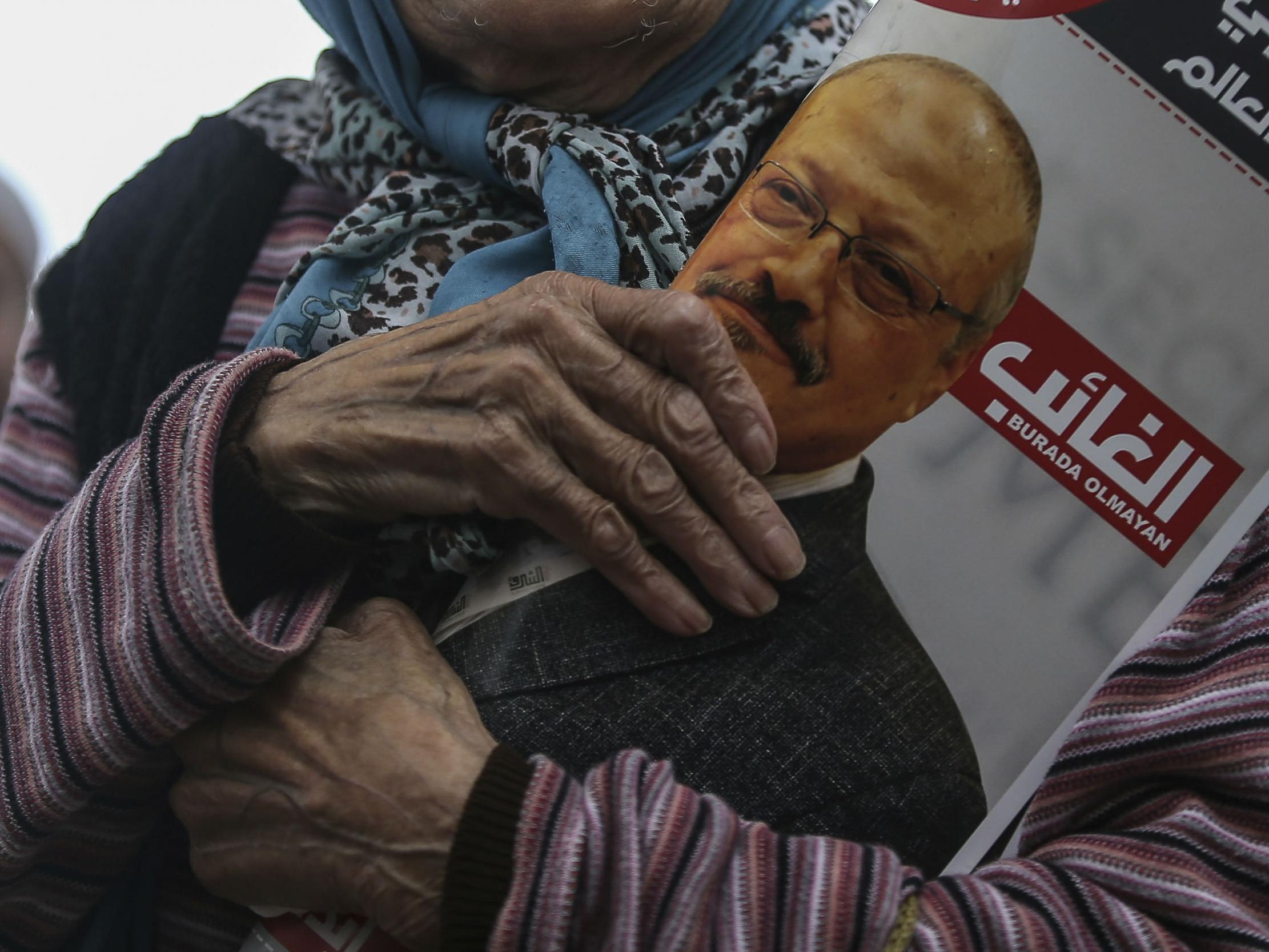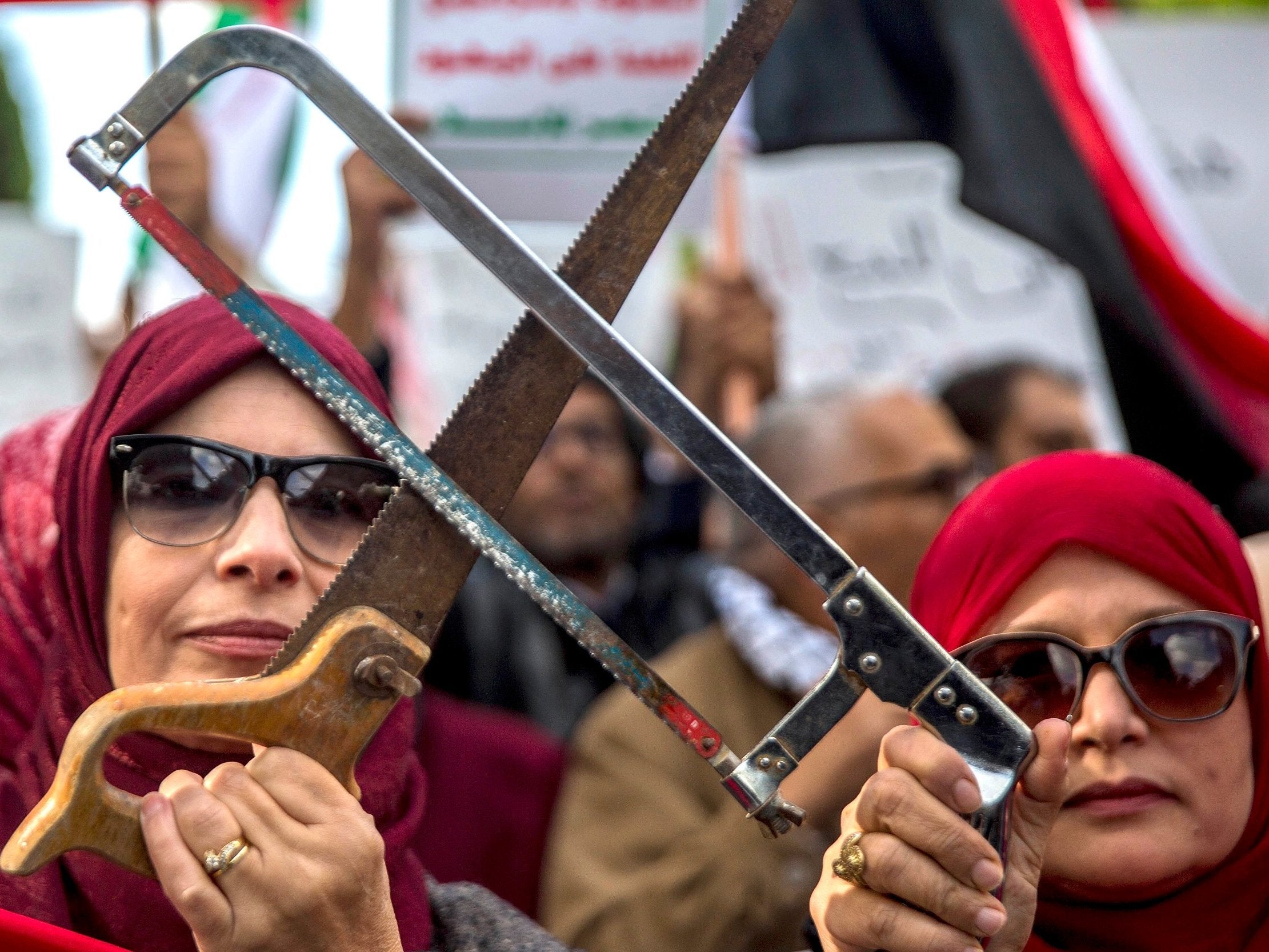Khashoggi murder: Global pressure on Saudi Arabia mounts as Turkey, US senators and UN turn up heat
Analysis: International furore shows no signs of dissipating, says Borzou Daragahi

More than two months after the brutal killing of journalist Jamal Khashoggi at the hands of Saudi operatives linked to de facto ruler Crown Prince Mohammad bin Salman, international pressure on the oil-rich kingdom continues to mount.
The furore poses a threat to both the leadership in Riyadh as well as to White House plans for the Middle East.
Yesterday, UN human rights chief Michelle Bachelet called for an international investigation into the killing, bucking Saudi Arabia’s insistence that it will handle the case on its own soil.
The call by the former president of Chile, who was herself a victim of torture at the hands of Augusto Pinochet’s regime, came hours after Turkey’s prosecutor issued arrest warrants for two top Saudi officials and demanded the extradition of 18 Saudi suspects on charges of ordering the murder.
The spokesperson of the Saudi embassy in Washington denied the accusation that Prince Mohammad ordered the killing. “At no time did His Royal Highness the crown prince correspond with any Saudi officials in any government entity on harming Jamal Khashoggi, a Saudi citizen,” Fatimah Baeshen tweeted. “We categorically reject any allegations linking the crown prince to this horrific incident.”
All this comes as peace talks get under way in Sweden between Iranian-allied Houthi rebels and the Saudi-backed Yemeni government forces. The Saudi and Emirati-led coalition is under pressure to cut a deal with the Houthis to end war in Yemen, which is experiencing what officials call the worst ongoing humanitarian disaster in the world.
The allegations and calls for investigations into Khashoggi’s murder add even more pressure on Saudi Arabia at a time when the White House is launching several Middle East initiatives. Prince Mohammad, who top Trump officials have praised as an enforcer of US policy and valuable arms buyer, is the cornerstone of US plans for confronting Iran, forging a peace between Israel and Palestinians.
But numerous obstacles stand in its way.
Turkey strongly opposes the aspirations and style of the 33-year-old prince, as well as what it describes as the Trump administration’s dangerous Middle East ambitions.
For weeks, Turkey has drawn attention to the killing with a series of sensational leaks detailing horrific details of the murder. But now it appears the narrative has caught fire across the globe. Protests greeted Prince Mohammad’s arrival in Tunis and Buenos Aires for a G20 summit.
Now, it’s US officials driving the story with sensational leaks, including reports of 11 text messages from Prince Mohammad to an official during the hours that coincided with Khashoggi’s murder.
“Turkey has entered a ‘wait-and-see’ phase as it’s allowing the international community time to digest the evidence and formulate responses to what happened in Istanbul,” said Yusuf Erim, an analyst for Turkish state television channel TRT.
“A large amount of evidence has been leaked by Turkey to date and along with the CIA’s report many world leaders belive there is irrefutable evidence linking Mohammad bin Salman to the murder.”
Turkey’s arrest warrants also highlight the failings of the Saudi investigation. Although Riyadh claims it has indicted a number of low-level operatives on charges related to the Khashoggi killing and has put others in detention, it has yet to charge either top aide Saud al-Qahtani or deputy head of foreign intelligence General Ahmed al-Asiri with any offences. Instead, Saudi Arabia claims they have been demoted and removed from Prince Mohammad’s entourage, without offering proof.
Human rights organisations have been petitioning the UN to launch an investigation of the Khashoggi killing for weeks, arguing that the Saudi legal system is too politicised under Prince Mohammad to get to the bottom of the killing.

But the UN has also been irked by the rise of authoritarian leaders around the world, as well as Trump administration officials who have questioned the value of multilateral organisations. In taking up Khashoggi’s cause, it may see an opportunity to challenge a surge of leaders who act with impunity, as well as far-right nationalists like Trump who question the UN.
Ms Bachelet offered up a tepid endorsement of an investigation last month but has now come out more forcefully for one, a sign the UN is now under tremendous pressure to more forcefully condemn the killing.
“The secretary general should, with Turkey’s consent, establish an investigative team to report on the responsibility for Jamal Khashoggi’s murder,” David Kaye, the UN’s special rapporteur on freedom of press, told The Independent.
“The fact that the High Commissioner has supported an international investigation suggests to me that she agrees with this approach. I think it’s an important signal that many in the UN system and the international community believe that it’s critical to have a credible, independent investigation.”
The US Senate’s motives in putting pressure on Saudi Arabia are less clear. Washington has traditionally stood by Saudi Arabia through thick and thin, despite some criticism by Democrats over the kingdom’s human rights record.
Those now criticising Saudi Arabia include “never Trumpers” such as the retiring Tennessee Republican Bob Corker, but also strident Trump supporters such as Lindsey Graham.
Some argue that Prince Mohammad’s misdeeds – including the disastrous war in Yemen, the jailing of Saudi royals, the kidnapping of Lebanese prime minister Saad Hariri, the blockade on Qatar – have so worried members of the US national security establishment that they are using the Khashoggi affair to wage a campaign to weaken or remove him from the line of succession.
Many in the US intelligence, military, and diplomatic corps remain aghast at the administration’s cosy relationship with the Saudi leadership – and actions that include publicly taking the word of Prince Mohammad on the murder while disparaging the conclusions of US professionals.
The killing of the well-connected Washington Post columnist also amounted to an assault on a member of the American establishment that many in the US elite say cannot be swept under the rug.
“There is high pressure from outside the administration on certain senators who have a symbiotic relationship with press and do care about it,” said Selim Sazak, a Washington-based researcher at the Watson Institute at Brown University. “The Washington Post is a powerful outlet. Some of these people, like Graham, have ambitions for the future. The Trump era will end sooner or later, those relationships, however, have to endure.”
Join our commenting forum
Join thought-provoking conversations, follow other Independent readers and see their replies
Comments